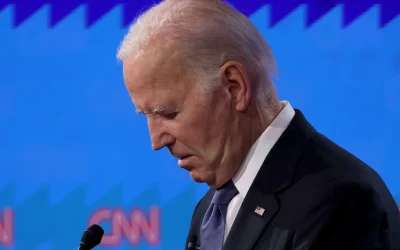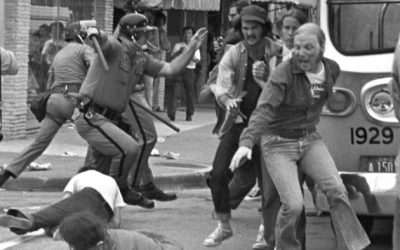Did the 9/11 attacks truly “change all of us,” as NBC news anchor Mika Brzezinski claimed yesterday?¹ That day of horror exactly 20 years ago launched two of the most intensive and destructive wars in recent history, conceived and spearheaded by the U.S. government. But does attack and vengeful response have anything at all to do with change? Or is the refusal to seek out and remedy root causes for hatred simply perpetuating and accelerating the terrible cycle of violence and inhumanity?
While wealthy nations such as the USA and UK are able to account for casualties for the wars in which they participate, one of the myriad tragedies of any large-scale and enduring war is the inability of an undeveloped country to accurately account for their dead. In Afghanistan, therefore, we can only defer to the consensus of military analysts, that some 200,000 Afghans were killed; in Iraq, more than a million Iraqis were killed.² The wars have also displaced roughly 6 million Afghans and 9 million Iraqis.
Bin Laden referred to the Western powers as the “far enemy” and some of those of the Middle East such as Egypt and Israel as the “near enemy.” (In the first day after the World Trade Center and Pentagon were attacked, the media referred to him as Usama. But those first three letters must have seemed somewhat disconcerting, as if we were looking in a mirror, so another transliteration was adapted to become the de facto standard — Osama.) When the United States committed what bin Laden considered blasphemy by setting up encampments in Saudi Arabia in the Persian Gulf War, the Gulf States became the “near enemy”. In one of his frequent gaffes, George Bush even referred to the vengeful actions of the U.S. forces as a “crusade,” a whistle to any Muslim and contemporary citizen of the world!
Just a few hours ago and on this day of mourning, Al-Qaeda leader Ayman al-Zawahiri was seen in a new video on Saturday, belying rumors that he had died. It was Zawahiri who had argued that the mujahedeen should focus on the far enemy, as it was Washington that was keeping the Arab leaders in power.
So, last month, when the Taliban advances succeeded in rapidly overcoming the much-vaunted Afghan army and then forcing the U.S. and allied forces to exit Afghan soil, there was nearly unanimous gnashing of Western teeth — how could this have happened? There were some leading historical experts such as Lawrence Wright, author of The Looming Tower, who perceived a glint of gold in the pan. “The removal of the United States from the area may diminish the antagonisms of the ‘Near Enemy,’ and that might not be the worst thing” ³
No child is born a terrorist. As the song from the Rogers and Hammerstein musical South Pacific goes, “You’ve got to be taught; To hate and fear.”⁴ Yet there have been virtually no voices in the West marking the sad anniversaries of tragedy who bother to search for the rationale bin Laden and his cohorts had to devise the epic violence that was 9/11 or Spain’s 3/11 and other large-scale acts of terrorism. I believe the genesis of terrorism is found in normal human responses to humiliation in a milieu of desperation.
In March of 2003, when I watched New York Times reporter Thomas Friedman’s interview on public television and heard him observe, “Humiliation is the single most underestimated force in international relations today,” I instantly made the connection between the Israeli-wrought conflict in Palestine.⁵
While I believe in the Jewish people’s right to have a secure and peaceful future, only those with a vested financial interest, Zionists — or their evangelical Christian apologists — can forgive Israel for the perennial and chronic abuses of the Palestinian people since 1948. The unending violations of Oslo Accords, which established that Gaza and the West Bank to be an indivisible territorial unity whose integrity cannot be broken up, can never be justified except by those foolish enough to ignore the end game.
Noam Chomsky aptly answered a question some eight years ago on the prospects for the future in the Middle East: “Well, one reasonable way to try to answer that question is to look at the record. And here, too, there is a definite pattern: A ceasefire is reached; Israel disregards it and continues its steady assault on Gaza, including continued siege, intermittent acts of violence, more settlement and development projects, often violence in the West Bank; Hamas observes the ceasefire, as Israel officially recognizes, until some Israeli escalation elicits a Hamas response, which leads to another exercise of ‘mowing the lawn,’ in Israeli parlance, each episode more fierce and destructive than the last.” ⁶
Yet, the United States blithely sailed from one presidential administration to the next in dumping arms and trillions of dollars into Israel’s coffers and providing the latest and most inhumane forms of suppressing not only dissent but humane living conditions. It should be a given that most Arabs and Muslims would identify with the oppressed Palestinian people.
As each assault and settlement is underway, the Arab nations and virtually all of the Arab League members collectively increase their anger. George W. Bush’s hapless and inept foray that was the Iraq “Conflict” sealed the fate of the West, yet the Western media and entertainment industries continually greased the sled of descent. The U.S. military scandal at Iraq’s Abu Ghraib prison (evils said to be “standard operating procedure,”) and thousands of Hollywood films and globally shared Western musical works normalized superficial and the most base responses to 9/11. Naïve Americans immediately after the Towers fell seemed just itching to bring the so-called clash of civilizations to the Muslim world. “‘Cause we’ll put a boot in your ass,” country music entertainer Toby Keith sang to sold-out crowds. “It’s the American way.”
I recently opened up an op-ed I wrote in an Atlanta newspaper in March 2003, the eve of the Second Iraq War. “Of course, the best path of all is not known to us mere mortals, except in hindsight,” I noted. “By initiating the first battle in the next few days, does America sacrifice long-term world opinion and influence for the short-term fix? For will not those who identify most with the weakest in this contest gain further fuel for future hostilities? Will today’s season plant a thousand seeds of flowering destruction, tomorrow’s bitter harvest of Osamas?”
..if you heap continual indignities and humiliations upon individuals or groups, eventually all will resort to whatever tactic necessary to recover their human condition, justice, and rights.
For those who might watch my finger-pointing at Israel and accuse me of being anti-Semitic, while I was raised as a Christian and am not today affiliated with any religion, I should note that I am proud of my Jewish roots (through my father) and raised my daughters to learn and understand Jewish culture. As well, some of my great-aunts and uncles surely perished in the Holocaust. I cannot forget what I have learned of this seminal point in history. In my half decade as president of the Greater Atlanta Interfaith Alliance in the ’90s, travels throughout more than 60 countries, and in more than a decade as a diplomat with the U.S. Foreign Service, I have developed a strong respect for many faiths.
But Goodness transcends religion and there are evil fundamentalists and extremists of all stripes. I try to not generalize or be judgmental, but I am convinced that what has been perpetrated upon the Arab and Muslim people since 1948 by the colonial or imperialist Western powers and their adopted surrogate Israel is no less of a tragedy — except in scale — than the Holocaust. I take the vantage point of the oppressed and suffering inhabitants under constant harassment, mortal attack and increasing starvation. For that matter, this immorality is no different than Native American and African slave genocide perpetrated by my fledgling American nation, the Armenian genocide perpetrated by the nascent Turkish nation, or the other genocidal actions by the Soviet Union, various European colonial powers, and the Catholic Church for nearly two millennia.
While 9/11 and other outrages can never be morally justified (except by ersatz Muslims appropriating the most perverse and incorrect interpretation of jihad), they should be “understandable” in terms of human psychology and sociology: if you heap continual indignities and humiliations upon individuals or groups, eventually all will resort to whatever tactic necessary to recover their human condition, justice, and rights.
Both Republican and Democratic presidential administrations failed to get to the psychological roots of passionate hatred directed against the United States in the Middle East and Islamic nations. But the Trump administration’s Islamophobic and reckless misadventures in the region contributed most of all to the acceleration of the downfall of American esteem and eroded any confidence held by the rest of the world in Western primacy or moral authority. During that administration, I could barely hide my shame at its misdeeds and words when I represented my nation in seven overseas countries.
To truly deal with causes rather than symptoms of terrorism, if my country had spent just one-tenth of one percent of the money spent since 9/11 on bombs, soldiers and bloodletting and, instead, devoted allocations to a campaign to educate our brethren on Islam, Muslim culture, and improving the quotidian conditions of the people of the Middle East, we would not have had to worry about the growing strength of ISIS, al-Qaida, the Taliban, and innumerable sympathetic zealots. Without the fuel of resentment and the human trait of pride, such terrorist entities would have had few recruits!
Little has changed since 9/11. The last two decades will forever be marked as a period of untold folly, innumerable missed opportunities, and a turning point after hundreds of years of Euro-American dominance.
Photo montage by John Elliott. Opinions expressed do not reflect those of my employer, the U.S. State Department. This essay was initially published in medium.com © 2021 John D. Elliott.
You’ve got to be taught
To hate and fear,
You’ve got to be taught
From year to year,
It’s got to be drummed
In your dear little ear
You’ve got to be carefully taught.
You’ve got to be taught to be afraid
Of people whose eyes are oddly made,
And people whose skin is a diff’rent shade,
You’ve got to be carefully taught.
You’ve got to be taught before it’s too late,
Before you are six or seven or eight,
To hate all the people your relatives hate,
You’ve got to be carefully taught.














0 Comments